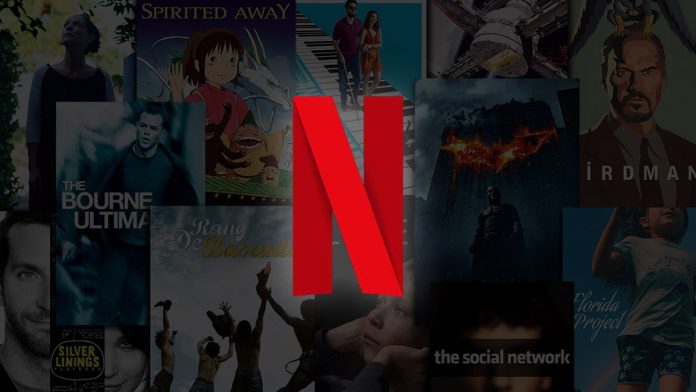This article is written by Niharika Agrawal, from IFIM Law School. This article deals with the issue of copyright infringement on OTT platforms, in light of the case of Pirtle v. Netflix.
Table of Contents
Introduction
Intellectual property rights (IPR) are the legal rights given to creators for their original works. IPR laws are made to protect the creators’ interests and assure them that their intellectual property is protected. However, not all such benefits are natural rights; they need to be recognized by the law. In India, there are various statutes for the protection of the intellectual property rights of the creator, and one such statute is the Copyright Act, 1957.
Copyright is an exclusive legal available to the owner for the specified duration for his work of printing, publishing, performing, recording, and musical material. Copyright infringement occurs when a person makes unauthorized use of somebody else’s copyrighted work. In this world of online media, we often come across the term ‘copyright infringement. An ‘over-the-top’ (OTT) is a media platform that provides video, movies, series, audios, etc. This trend of OTT media has increased tremendously. It is important to know about the issues relating to copyright infringement on such media platforms and about the laws for protecting them against violations. This article has dealt with the issue related to copyright infringement on OTT platforms and the laws related to it in the light of the recent case Raymond Pirtle v. Netflix.Inc. (2021) in which the plaintiff has alleged the violation of his trademark and copyright entitled under the name “Skater Girl”. This also includes various opinions of the IP Lawyers with respective Copyright infringement.
IPR and enforcement under OTT
Various OTT platforms such as Netflix, Amazon Prime gets into an agreement with the production house that produces the contents like audio-visual and gets them released under the banner of the OTT platform. The infringement of these contents gives rise to copyright infringement under the Copyright Act. The Act defines the meaning of copyright infringement under Section 2 (m) which also includes various other rights and vests exclusive rights on the creator of the work. Any content that resulted in civil or criminal liability under Section 51 of the Act which is also considered as the unauthorized reproduction or deliberate storing of the work as infringement, is the direct infringement by an OTT service provider. This Act also provides technological measures for copyright protection.
Another important Act that regulates copyright infringement is the Information technology Act, 2000. This Act also takes into consideration the unauthorized distribution of copyright content as an offense and gives responsibilities to the intermediaries as well to make sure that no infringing contents are posted on the OTT platforms, as per the Intermediary Rules of 2011. The draft Information Technology [Intermediaries Guidelines (Amendment) Rules] 2018, asks such platforms to bring some technology-based solutions to identify and stop infringements.
Review of copyright infringement in the case of Raymond Pirtle v. Netflix Inc. (2021)
This present petition was filed by Raymong Pirtle Jr. (Plaintiff) against California-based Netflix Inc. in the District Court for the Northern District of Georgia. It was alleged that Netflix’s film ‘Skater Girl’ has infringed the rights of Pirtle’s independent film ‘Sk8r Grrl’.
A brief fact of the case is, a Bollywood movie ‘Desert Dolphin’ was released in the year 2020. Subsequently, in the same year the plaintiff’s movie named “Sk8r Grrl” was also released. Later, due to the accusations in January 2021, Defendant changed the name from ‘Desert Dolphin’ to “Skater Girl”. Plaintiff pointed out that his work is pronounced phonetically by the public as ‘Skater Girl’ and written as “Skater Girl™” with a logo version titled “Sk8r Grrl™ ” as it shares the same likeness as the Netflix Film.
Plaintiff contentions
- The plaintiff in his contention states that the defendant has made unauthorized usage of his copyrighted and trademarked works under the title “Skater Girl (2021)” and “Skater Girl™” also known as “Sk8r Grrl™” (further known as The Works).
- The plaintiff has reserved all the rights in the Works which was first released in the year 2012 in Newyork city. “Skater Girl™” is an international movie brand that includes film series, upcoming movies, multimedia applications, clothing lines, NFT applications, etc.
- The defendant’s work entitled “Skater Girl (2021)” appeared on many websites the same as those of the plaintiff which is identical to the Works. The Works of the plaintiff are phonetically the same as the Skate Girl of the defendant.
- The defendant has changed the name of the Bollywood film which was released in 2020 from ‘Desert Dolphin’ to ‘Skater Girl’ in 2021. Another contention is that both the movies were supposed to be released in the same year.
- Plaintiff has announced the date of release as 22nd June 2021. A few days after the release of the date by the plaintiff, the defendant has also released the date of his film, which is on 11th June 2021.
- Based on the above facts the plaintiff contended that the defendant neither asked nor received the permission to use the Works as the basis of the SkaterGirl (2021) and nor to advertise, post, make, sell, or distribute copies of the same. Hence, this has led to infringement of the plaintiff’s trademark rights and copyrights.
This case was dealt with by various experts under the Intellectual Property Right sector. One such expert was Tony B. Askew, a Principal at Meunier Carlin and Curfman in Atlanta, has 50 years of experience in litigating trademark, patent, and copyright cases. According to him, though this independent film was spelt differently, the film on Netflix was phonetically pronounced similarly. However, this would not amount to a trademark infringement lawsuit. He opined that plaintiff Pirtle has little chance of succeeding in copyright cases. However, he also notified that such little difference in the title of the films would not carry copyright infringement cases. In copyright cases, it is very important to observe the difference between the idea that has been expressed and the idea of that expression.
This was agreed by Thomas J. Mihill, the Trademark registration attorney, partner of Owen Gleaton in Atlanta. According to him, the case is about the recurring public confusion related to intellectual property and its protection. He also brought this case as an infringement of copyright, but he observed that Plaintiff did not complain about any of the plot or characters of the story or any other elements of the story. He also pointed out that the Plaintiffs’ craft was not registered under Intellectual property rights and hence, he does not have the proper protection to his property and cannot present their pro se infringement case. Plaintiff was advised to register it as soon as possible. However, such registration after the infringement brings about the risk of losing statutory damages and other benefits that may make the claim stronger.
Another Intellectual Property attorney Lilienfeld P.C. founder, David Lilienfeld further highlighted that no copyright infringement lawsuit can move ahead without registration of work with the copyright office. Pirtle’s case lacks proof of copyright registration.
Defendant’s contentions
- In the end, the counsel for the defendant, Racquel V. McGee of Lewis Brisbois Bisgaard & Smith contended that Plaintiff has no basis for claiming copyright infringement in this case and the case of trademark suit is still pending. He opined that the title of a single work cannot be considered a trademark. There needs to be a series of names for it to be regarded as a trademark.
- It was contended that since the plaintiff has no bad conduct against the defendant, Netflix is not guilty of any infringement. The final judgment of this case is yet to be pronounced by the court.
However, this case has given recognition to the fact that for claiming any right under Intellectual Property Law, it is important to first register the creation, and it should be recognized under the law. Moreover, every Intellectual property right has some conditions to be satisfied by the creators to claim protection over the property.
Findings of the court
The defendant moved to the court in order to dismiss the case by alleging lack of personal jurisdiction. The federal court further recognises two types of personal jurisdiction i.e. general jurisdiction and specific jurisdiction. The general jurisdiction can be asserted by the court for any foreign corporation to hear all the claims only when their affiliations with the states are so continuous or systematic to render essentially at home and forum state. Specific jurisdiction is based on affiliation and underlying controversy.
The Court finds out that it lacks jurisdiction over Netflix. Since Netflix does not have contacts sufficient to render it “ essentially at home” in Georgia, the general jurisdiction cannot arise here. Also Netflix is a Delaware corporation having its principal business in the State of California. Hence, the personal jurisdiction for this case can be either in Delaware or California.
The specific jurisdiction also does arise as there is no affiliation between the forum and the underlying controversy. The plaintiff failed to prove the connection between Netflix’s film and the forum in the State of Georgia. Netflix’s film was neither developed, nor filmed or produced in the state of Georgia. The Court observed that as Netflix has not purposely availed the privilege of conducting the activities within the forum state, it cannot be subjected to personal jurisdiction in Georgia.
Lastly, the Court ordered the plaintiff to pursue its claims in the appropriate state forum and hence dismissed and transferred the case to appropriate court.
Conclusion
The above case of Pirtle v. Netflix explained the importance of registration of intellectual property under the law for availing the protection. Also, it was pointed out about the conditions that need to be satisfied for claiming copyright infringement. However, it is quite difficult to deal with copyright infringement on OTT platforms in India as there is no adequate law to deal with. India needs to provide statutory protection to copyright holders in case of copyright infringement on OTT platforms. With the increase in trends of such online media platforms, it is essential to protect the rights of creators and the data and trust of users.
References
- https://www.tapjoy.com/resources/what-is-ott/
- http://www.legalserviceindia.com/legal/article-4851-internet-broadcasting-under-the-copyright-act-1957.html
- https://www.mondaq.com/india/copyright/860144/internet-broadcasting-and-section-31d-of-copyright-act-1957
- https://thelawreporters.com/intellectual-property-rights-in-ott-platforms/
- https://christuniversity.in/uploads/departmentactivities/Intellectualis%20October%202020_20210408044711.pdf
- https://www.law.com/dailyreportonline/2021/07/06/ip-lawyers-weigh-in-on-why-copyright-suit-against-netflixs-skater-girl-is-likely-to-face-plant/
Students of Lawsikho courses regularly produce writing assignments and work on practical exercises as a part of their coursework and develop themselves in real-life practical skills.
LawSikho has created a telegram group for exchanging legal knowledge, referrals, and various opportunities. You can click on this link and join:
https://t.me/joinchat/J_0YrBa4IBSHdpuTfQO_sA
Follow us on Instagram and subscribe to our YouTube channel for more amazing legal content.
 Serato DJ Crack 2025Serato DJ PRO Crack
Serato DJ Crack 2025Serato DJ PRO Crack











 Allow notifications
Allow notifications


